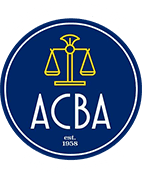
Chapter 7 Bankruptcy Lawyer in Denver
Serving Jefferson County, Douglas County, Arapahoe County, and Adams County
Put simply, a Chapter 7 bankruptcy is the process someone can use to wipe out his or her debts in exchange for possibly having to give up some of their assets pay back creditors. Chapter 7 bankruptcies are often referred to as “liquidation” bankruptcies. However, in most cases, debtors are able to keep their assets and not have to give up anything, even a house or a car, in the right circumstances. We can tell you what assets you would be able to keep in bankruptcy during a free consultation. Flat rates and unbundled services available.
Meeting of Creditors
For most debtors, the hardest part about bankruptcy is the “unknown” or what to expect once everything is filed. After a debtor’s petition is filed with the Court, a person called a Trustee is assigned to the case to represent the debtor’s creditors. A meeting with the Trustee is automatically docketed and the debtor must meet with the Trustee in person to discuss the petition. This meeting is called a 341 Meeting of Creditors. This may sound scary but in fact, it’s very routine and quick. Most of these meetings last 5 minutes or so; just long enough for the Trustee to ask the Debtor some basic questions about the information in the petition. Our attorneys will always be with you at your creditor meeting and prepare you beforehand on what to expect at the meeting.
Discharge
After the 341 Meeting of Creditors, creditors have 60 days to file any objections they may have about their debt being discharged by the Court. The objections must have some sort of legal basis and can’t simply be because the creditor feels that it’s “unfair” for their debt to be discharged. We work with you before you even file your bankruptcy to identify any debt that might have a chance at not being discharged so that we can plan accordingly. After the creditor objection period has passed, the Court will issue a discharge of debts. The discharge prevents creditors from ever again trying to collect on that debt and allows the debtor a truly fresh start.
Cost
You can get started with us for as little as $100!
We tell this to everyone who comes in our doors, watch out for the cheap bankruptcies. It’s very easy to find advertising for bankruptcies as low as $399, but as with everything in life, if it’s too good to be true, it usually is. Those clients who come in our doors that have tried the cheap bankruptcy route all report the same things: little to no contact with the attorney, bait and switch tactics, no return phone calls, no one going with the debtor to the 341 Meeting of Creditors, incorrect paperwork, paperwork not filed, etc. We charge a flat fee rate beginning at $1,500 (plus costs) which can be paid in installments. We believe in being upfront with our clients from start to finish.

Our Testimonials
Hear What Our Clients Are Saying
-
"He fully investigated points that needed clarification."He is very caring and makes sure you understand the complications that are involved in your case.- Laura S.
-
"Very understanding law firm also and a lawyer that cares about your case!"If it wasn’t for Cory, I don’t think my case would’ve gone good like it did.- Dania C.
-
"Overall this firm is great, they care about their clients!"Stacy was wonderful very helpful and informative. She made the whole process easy and smooth.- Shirley S.
-
"Corey and his staff especially Stacy were exceptional."They fully represent you as a client and fight for what is right and in the best interest of the children.- Frank E.
-
"Curtis Law Firm is better than 5 stars."Small enough to care and knowledgeable to know what they are doing.- Mary J.
-
"He very patiently answered all our questions (and we had a lot of them)."It was wonderful to be reassured, His office staff was courteous, and Mr. Curtis was knowledgeable, professional, but was very personable.- Shirley H.
-
"He is very knowledgeable, professional, and likeable."I have referred friends and family to him because I trust he will provide them with excellent legal representation.- Amy G.
-
"Nice smart compassionate lawyer."Very smart. Very resourceful. Addresses all options.- Jason C.

Why Choose Curtis Law Firm?
-
BiLingual Communication
We have staff members who speak Spanish.
-
Appointment FlexibilityWe make ourselves available to help accommodate your schedule.
-
Affordable Legal RepresentationWe make good legal help attainable with small retainers, payment plan options, and financing if needed.
-
Providing SupportFamily changes can be emotionally hard. We help make it easier.




